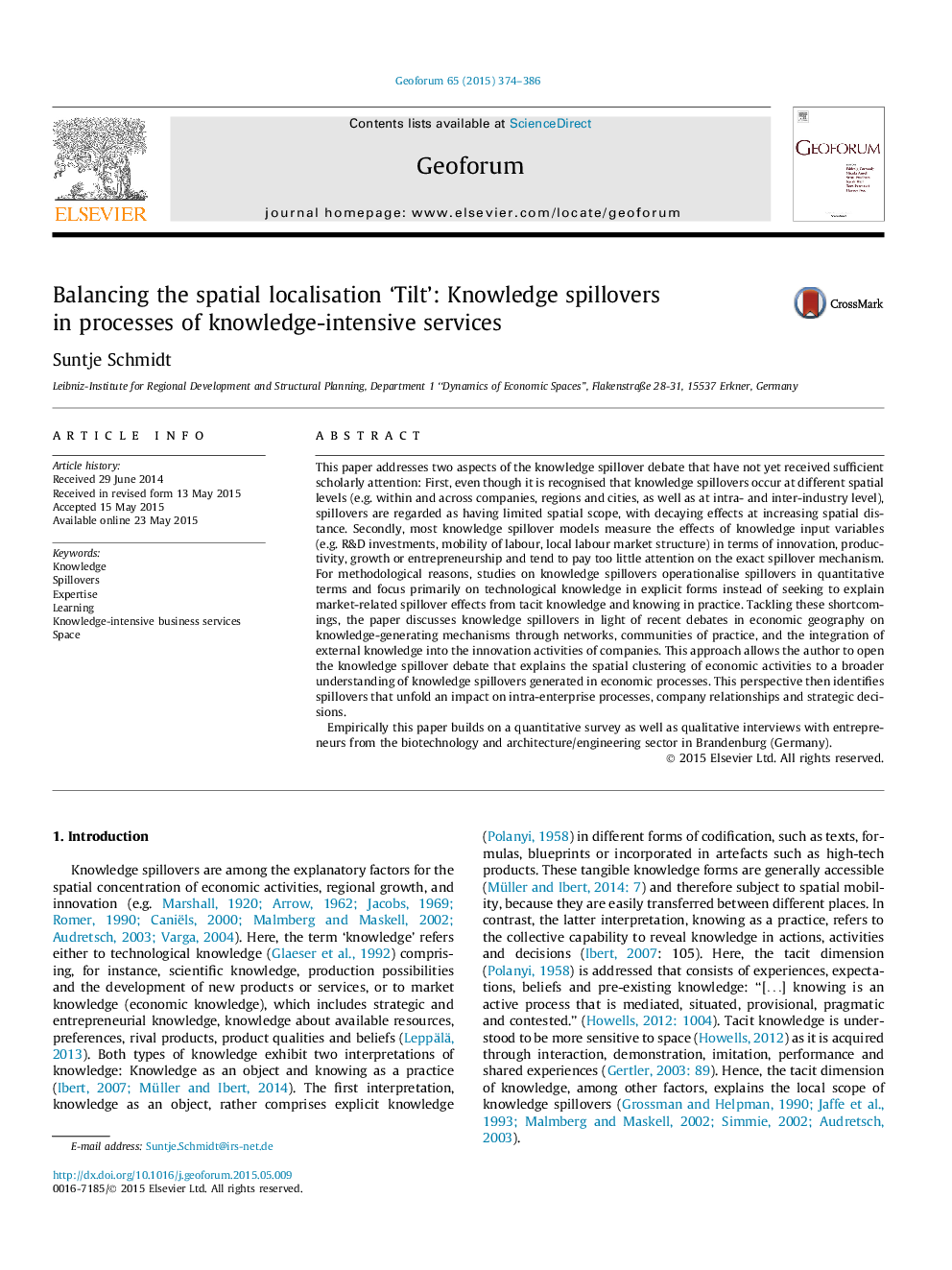| Article ID | Journal | Published Year | Pages | File Type |
|---|---|---|---|---|
| 5073829 | Geoforum | 2015 | 13 Pages |
â¢Focus on spillovers that influence the ability to act and to solve problems.â¢Qualitative case study as methodological approach to spillovers.â¢Identify spatial knowledge spillovers in business services.â¢Knowledge spillovers positively affect decision making processes.â¢Knowledge spillovers influence the quality of services.
This paper addresses two aspects of the knowledge spillover debate that have not yet received sufficient scholarly attention: First, even though it is recognised that knowledge spillovers occur at different spatial levels (e.g. within and across companies, regions and cities, as well as at intra- and inter-industry level), spillovers are regarded as having limited spatial scope, with decaying effects at increasing spatial distance. Secondly, most knowledge spillover models measure the effects of knowledge input variables (e.g. R&D investments, mobility of labour, local labour market structure) in terms of innovation, productivity, growth or entrepreneurship and tend to pay too little attention on the exact spillover mechanism. For methodological reasons, studies on knowledge spillovers operationalise spillovers in quantitative terms and focus primarily on technological knowledge in explicit forms instead of seeking to explain market-related spillover effects from tacit knowledge and knowing in practice. Tackling these shortcomings, the paper discusses knowledge spillovers in light of recent debates in economic geography on knowledge-generating mechanisms through networks, communities of practice, and the integration of external knowledge into the innovation activities of companies. This approach allows the author to open the knowledge spillover debate that explains the spatial clustering of economic activities to a broader understanding of knowledge spillovers generated in economic processes. This perspective then identifies spillovers that unfold an impact on intra-enterprise processes, company relationships and strategic decisions.Empirically this paper builds on a quantitative survey as well as qualitative interviews with entrepreneurs from the biotechnology and architecture/engineering sector in Brandenburg (Germany).
